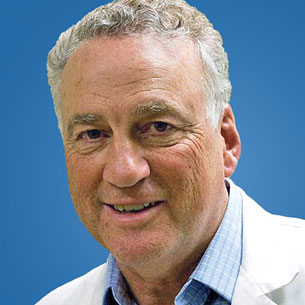A couple of events this week reminded me of what I can best describe as "our calling." The first was the good-bye party for an administrative staff member in an outreach clinic I attend. She had spent most of her career working in a busy orthopedic practice and the last 6 months working with our oncology staff. She said that working with the nurses, physicians, staff and patients in the oncology practice had been a rejuvenation--a reminder of why she wanted to be involved in health care. On a much deeper, but related level, I read the New Yorker article, "Letting Go" by Atul Gawande. It was one of those pieces that captured so fully the challenge of facing death with our patients that you can't help but think, "I wish I could write like that..."
My own first experience with death's door began with a phone call from my sister during the first month of medical school. My father had been diagnosed with AML at age 65 and his brief struggle to survive ended before our final exam in anatomy. The next knock at the door came from our family physician in Chadron, Nebraska, when I was an intern at Parkland Hospital. "Mike," he said, "your mother has a mass in her breast the size of an orange. I can't believe she let this thing go so long..." Three days later, as I stood outside the OR looking through the microscope with the pathologist at the frozen section, I saw tissue that was 50% my own DNA, and I began to realize that the struggle with that inheritance would be my life's work.
Now, 40 years later, in the swirl of inibs and umabs, mandatory online courses in blood borne pathogens and HIPPA compliance, and coding technicians who remind me that without saying the exact right phrase, my dictation will not support such and such billing code, it is all too easy to forget the "calling." Yet in virtually every clinic session, at least one of my patients has reached the threshold of death's door. The unique privilege of interacting with another human being at such a crucial moment, to hold their hand, or lighten the situation with a bit of humor if appropriate, to discuss the far out molecular based options as well as the option to turn a page and focus on a dignified, pain-free, and meaningful passage through that door is what makes medical oncology so special. As scientific inquiry advances, we will inevitably turn cancer into a chronic illness, like diabetes or hypertension. But we will not escape the joy and sorrow of standing at death's door with our patients, and taking the time to experience that with them is an intimacy that few physicians experience as often as the oncologist.


Recent posts